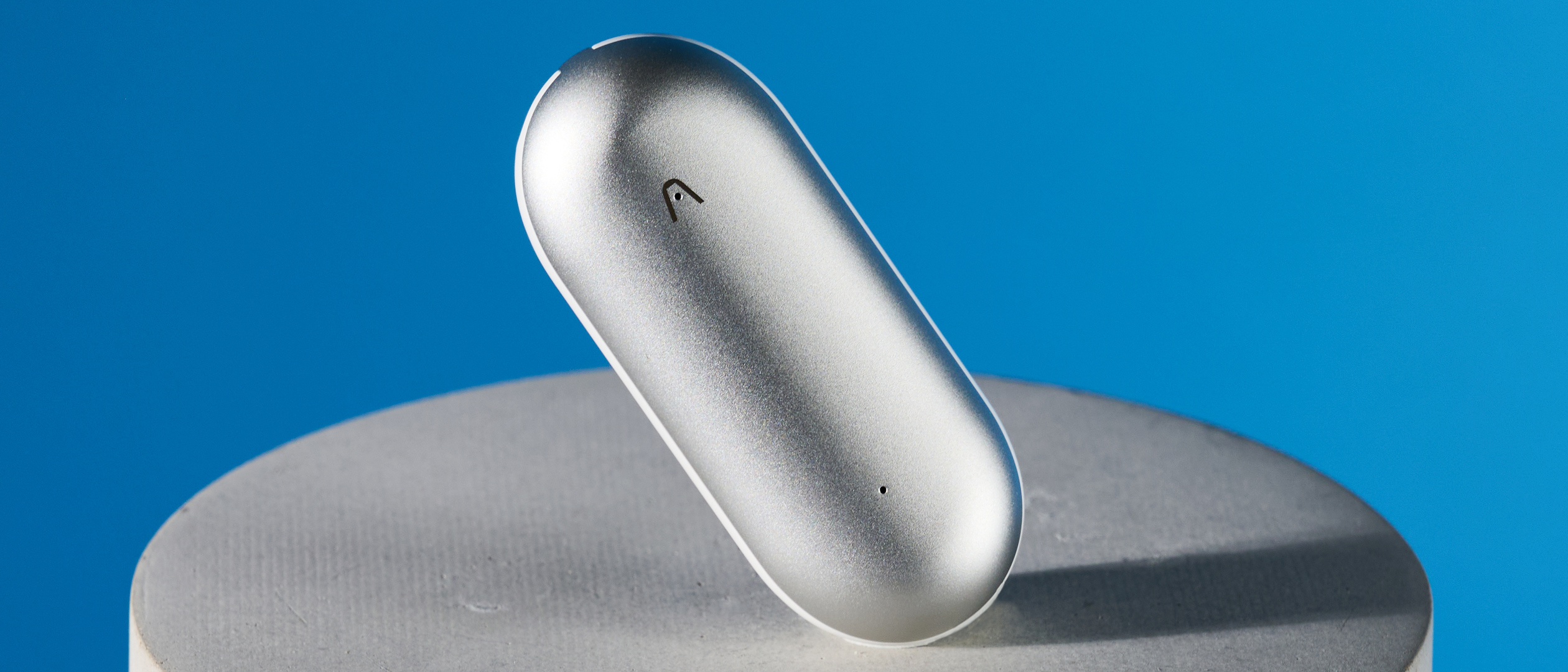7 surprising ways you can reuse old coffee grounds
We’ve found 7 clever uses for old coffee grounds
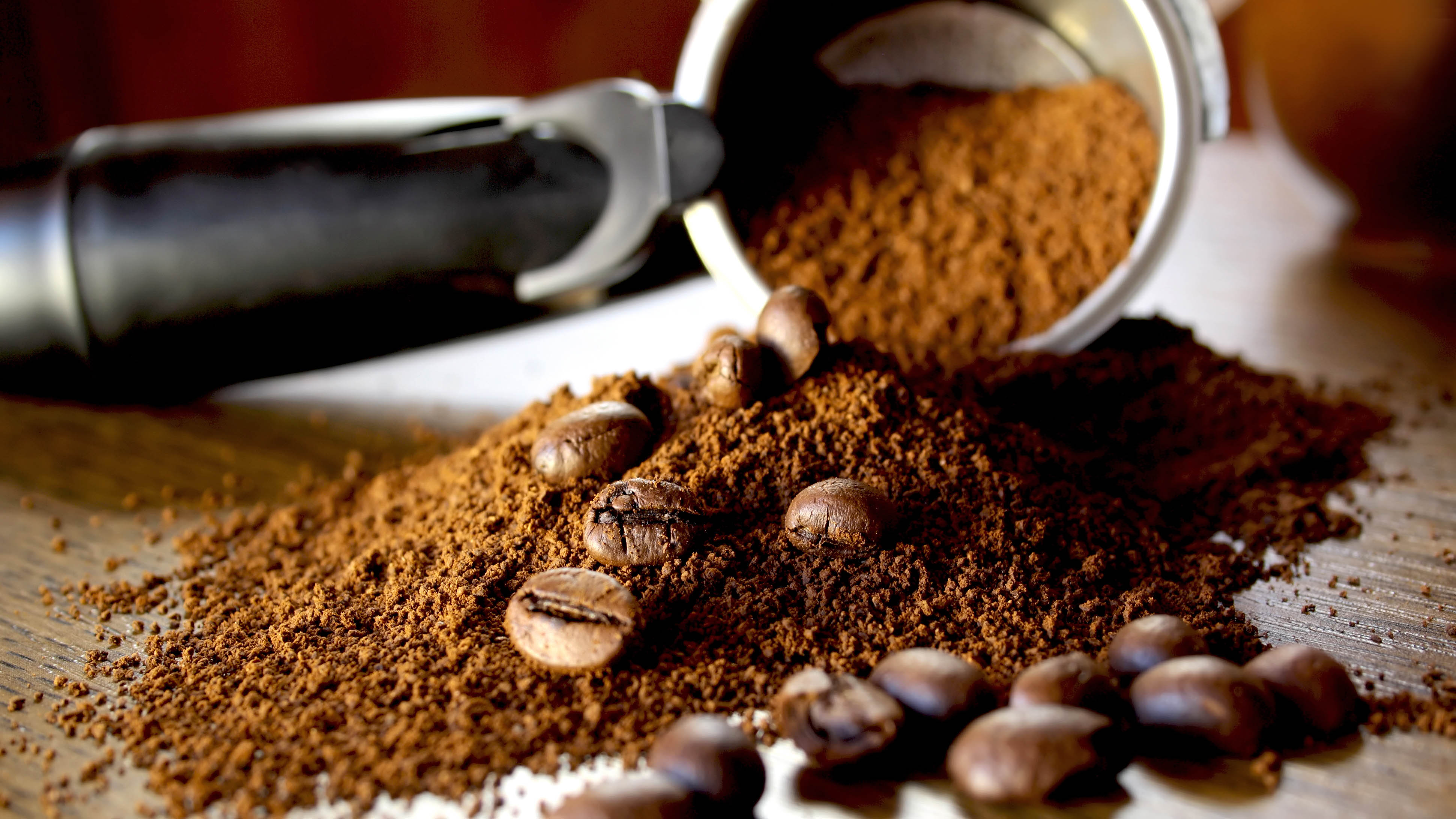
When it comes to household waste, we’re trying the best we can to reduce, reuse and recycle. Whether you’re looking up the 9 ways you can reuse grass clippings after mowing, or utilizing the 5 clever ways to reuse old bricks in your yard, there’s all kinds of possibilities to get more from your waste. One such residue which has a great many uses is old coffee grounds.
Whether you use one of the best espresso machines or one of the best coffee makers, coffee grounds often end up straight in the trash. But they actually have their uses all over the home and yard. From improving your soil, to deodorizing smelly areas, the possibilities are vast. If you’re keen to learn how you can make the most of your old coffee grounds, we’ve listed 7 surprising uses here. You’ll never throw it straight in the trash, or pour it down the garbage disposal again — you shouldn’t do this anyway; coffee grounds are one of the 13 things you should never put in the garbage disposal.
1. Perk up your plants
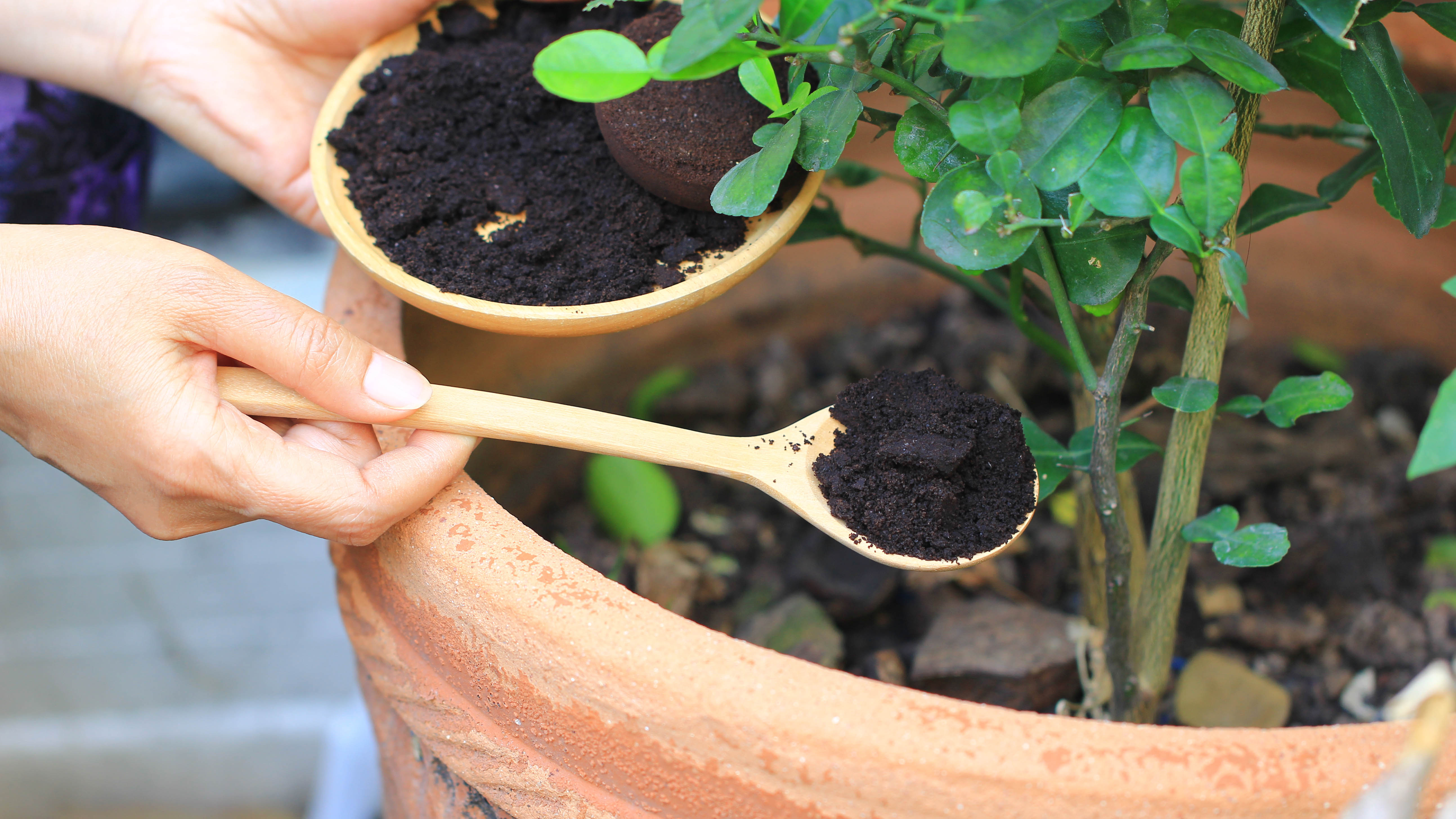
First of all, coffee grounds are well known for improving the soil conditions for your plants as well as acting as a fertilizer. Amongst its composition, it contains magnesium, potassium, nitrogen and calcium — all key nutrients you want in your soil. In fact, if you buy a soil test kit, such as Luster Leaf 1601 Rapitest Test Kit for Soil ($15, Amazon), you will see they’re amongst the nutrients you’re looking for. The slight acidic nature can be appreciated by a great many plants too, but take care around seedlings, as it's known to prevent germination.
Simply sprinkle dry coffee grounds around your houseplants for best effect. You can also mix it directly into your soil outdoors, which improves overall aeration and moisture retention. Just take care not to apply too many grounds in a concentrated space — otherwise it can restrict water and air flow in the soil. Make sure it’s spread finely and evenly across the surface and worked into the soil. You can also mix a coffee grounds ‘tea’ by combining two cups of grounds with 5-gallons of water. Then apply directly to your plants.
Coffee grounds are one of the 7 surprising household items to help your plants grow.
2. Repel pests
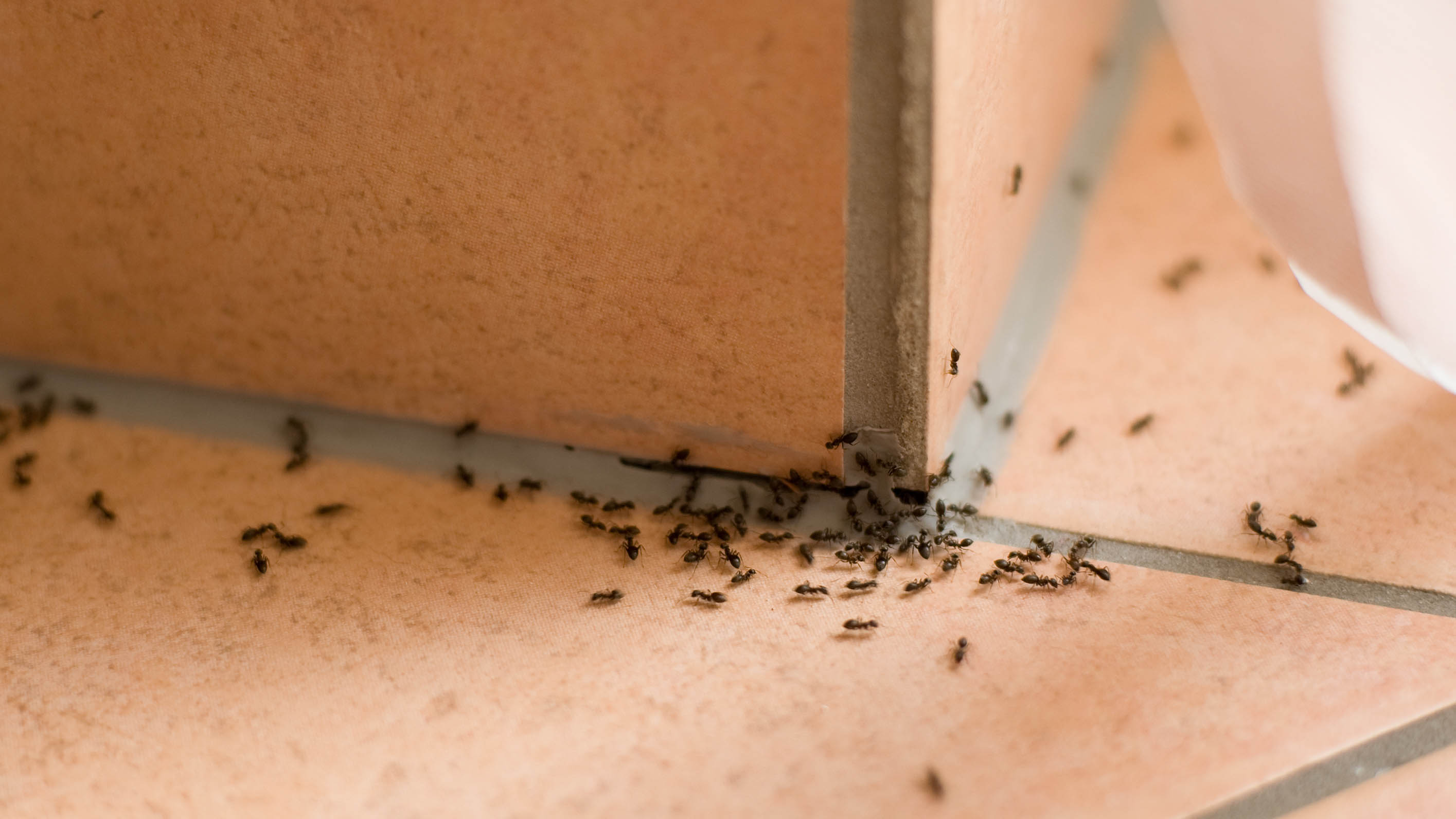
While we may love the smell of coffee in the morning, a great many pests do not. In fact, the smell of old grounds and its gritty texture is so overpowering that it’s known to repel ants, mosquitoes, slugs and snails, and even cats and foxes — although experiences of its effectiveness do vary.
So by combining coffee grounds with your soil, you may be actively deterring pests at the same time. You could alternatively create a barrier of sorts around your previous plants using old coffee grounds, but bear in mind that it will need replacing regularly once subjected to wind and rain.
Sign up to get the BEST of Tom's Guide direct to your inbox.
Get instant access to breaking news, the hottest reviews, great deals and helpful tips.
You can use coffee grounds as a repellent indoors as well. If you’ve spotted a number of ants traversing your kitchen, simply sprinkle grounds on small disposable surfaces, such as cardboard, and strategically place these around your home. If you spot a potential entrance, make sure you place old grounds in front of it while you fill it in with caulk.
We've also found 7 ant-repellent plants to keep your home pest-free.
3. Attract worms
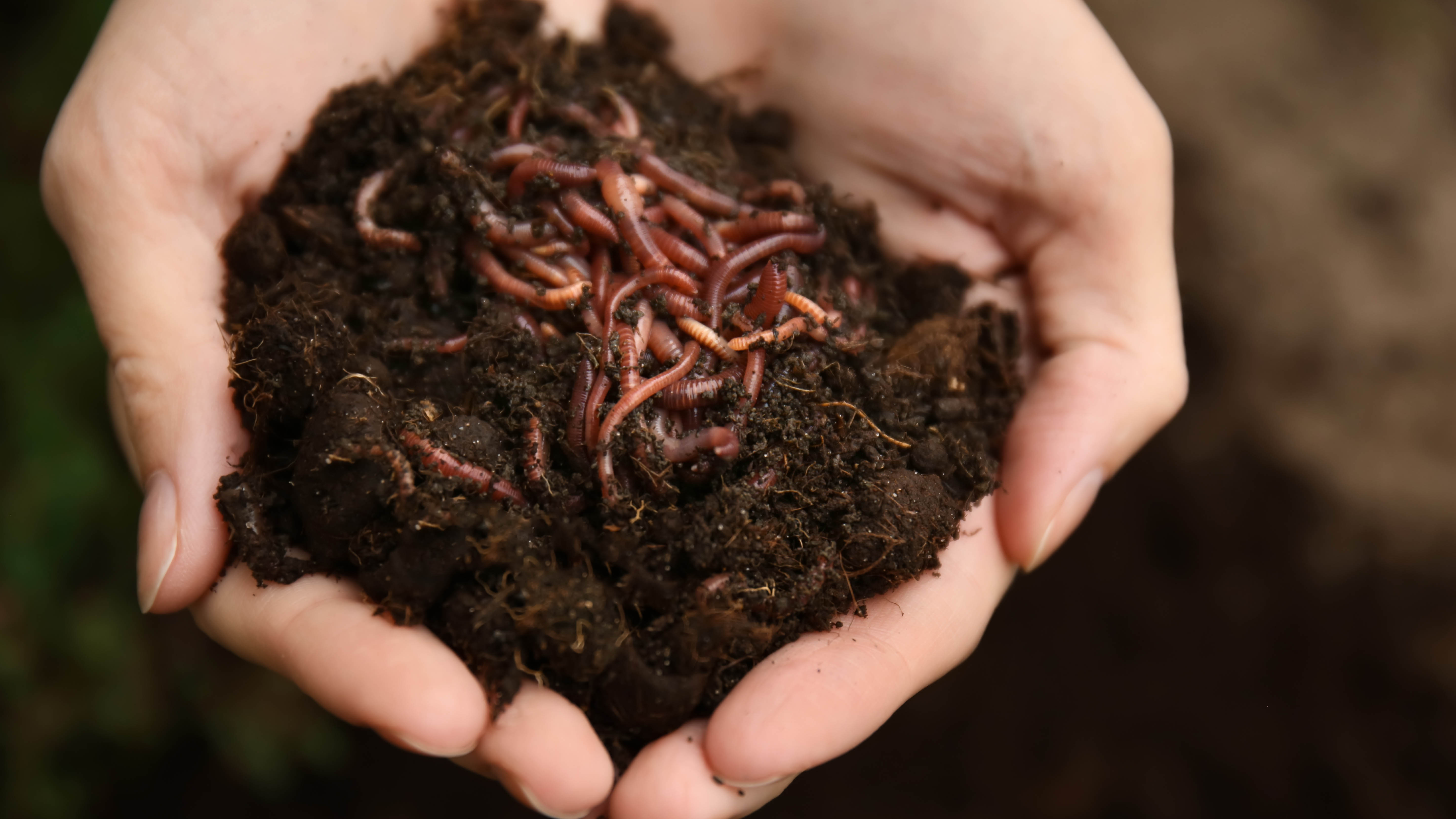
The great thing about old coffee grounds is that, as well as repelling annoying pests, it will attract beneficial creatures too — namely worms. Worms are great for your soil because they help break up and aerate the composition, meaning water drains more freely and plant roots can grow more easily. Plus, their castings can provide valuable nutrients for your plants too, so the more worms, the better.
Worms are attracted to coffee grounds as a food source. It provides a gritty substance which supports their digestion. So this is yet another reason to support your plants with coffee grounds. Worms are a big fan of old coffee grounds in your compost heap too, but more on that later.
4. Deodorize your trash
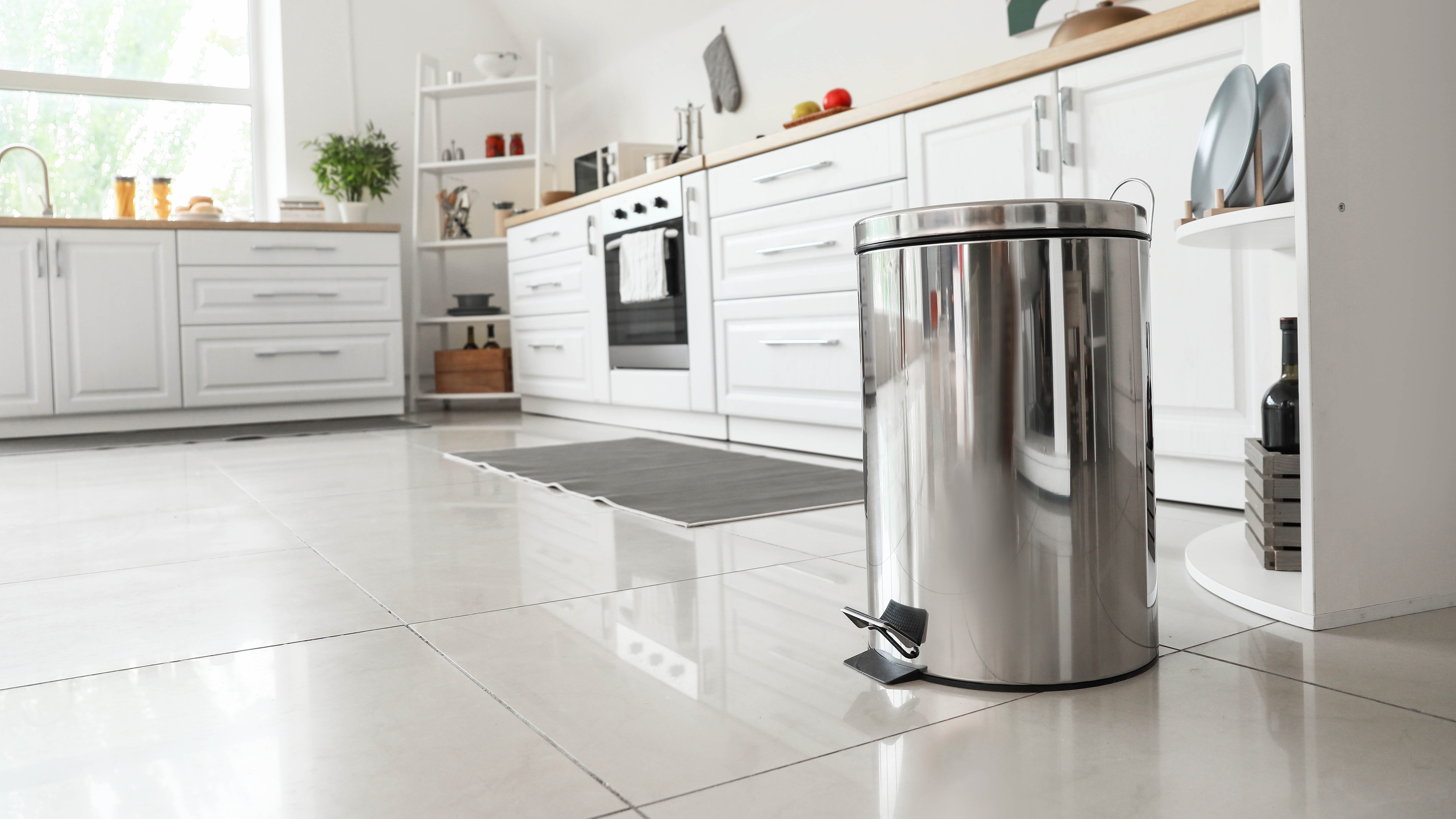
Much like baking soda, old coffee grounds can help to naturally deodorize a space. It works in the same way — by absorbing any odors and emitting a nutty fragrance in its place. It’s particularly great for deodorizing a trash can; simply sprinkle dry grounds in the base of the container before you add a fresh bag. Here’s how to deodorize your trash can in 5 easy ways if you’re looking for more methods.
It can also work wonders in the best refrigerators, as well as your cabinets. Simply place an open bowl full of dried coffee grounds in such confined spaces, and wait for it to work its magic. You can even use it to deodorize your hands if you’ve been chopping onions or garlic — scrub the grounds directly on your skin and exfoliate at the same time.
5. Improve your compost
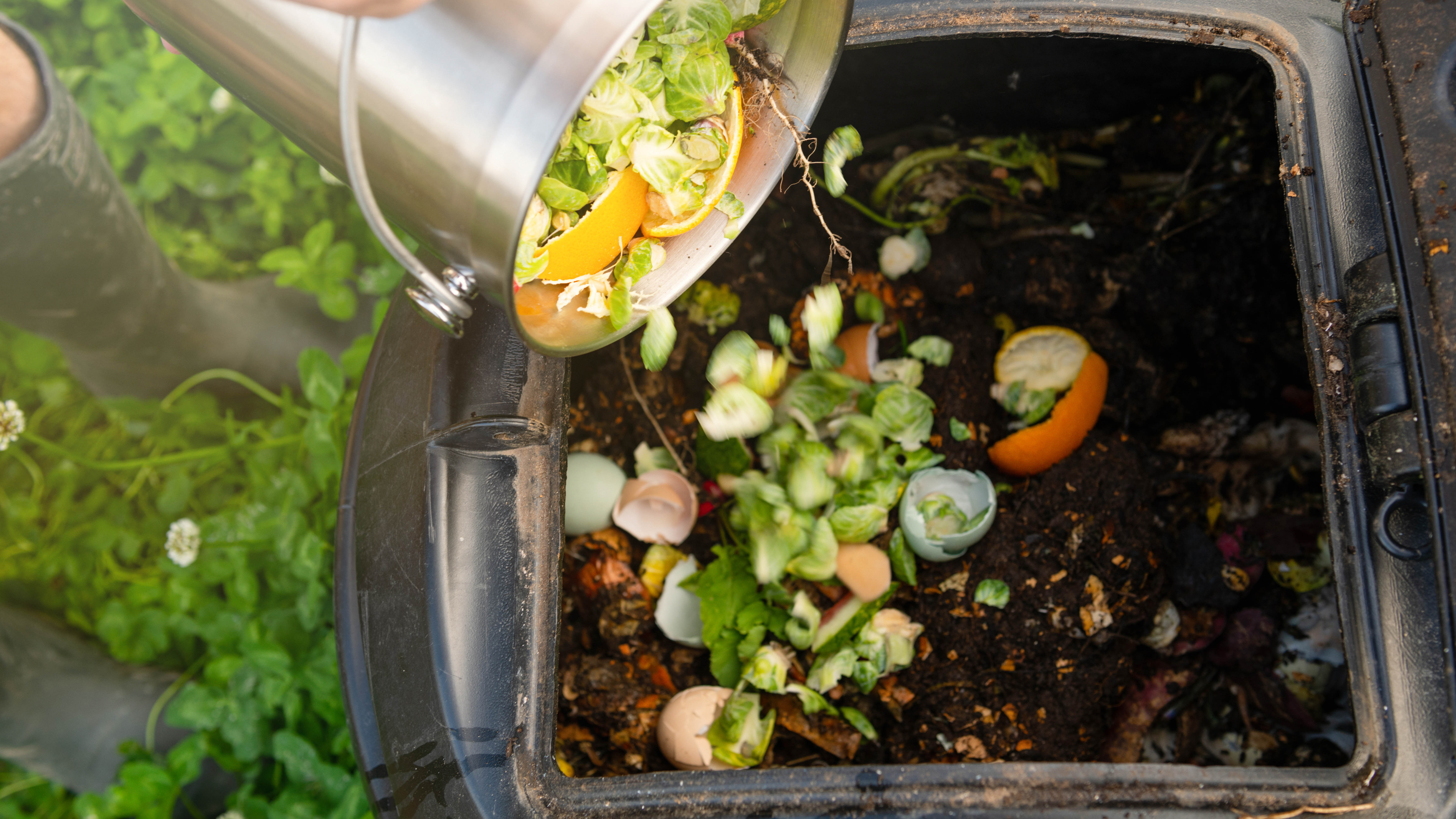
As mentioned earlier, old coffee grounds contain much-needed nutrients for your soil, including a heavy dose of nitrogen, so it stands to reason that it’s a welcome addition to the compost heap too. Old coffee grounds compost well when balanced out with brown material (3 parts brown, to 1 part green is best). It attracts and feeds microorganisms (including worms), which breaks down the matter more promptly.
Don’t forget, your coffee filters can go on the compost heap as well, but only so long as they are made from paper — you will need to check for other materials. We’ve also found 11 things you should never throw on the compost heap.
6. Clean pots and pans
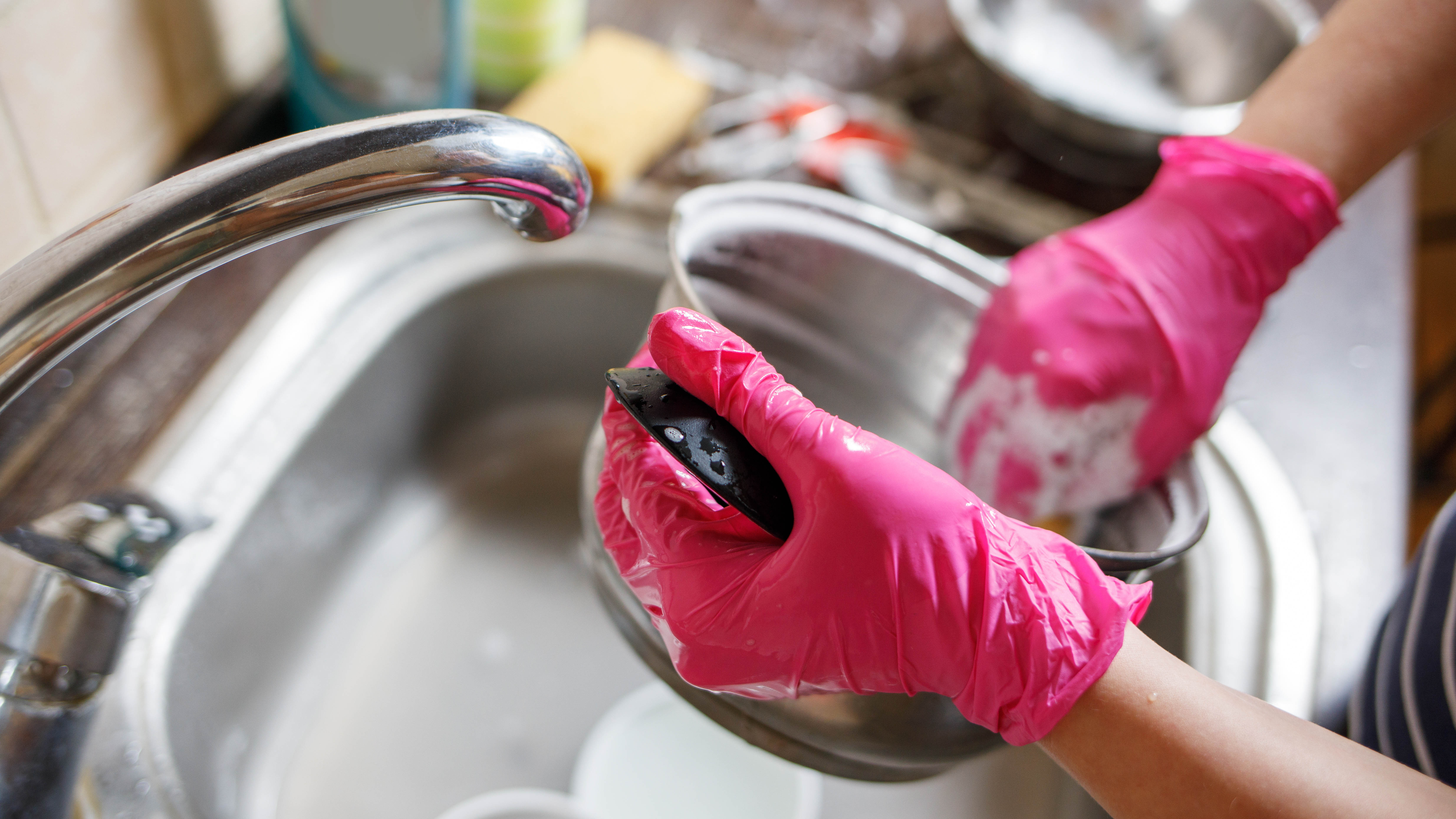
The abrasiveness of old coffee grounds has its uses in the kitchen too. For instance, if you’ve got an old pot, pan or baking sheet with baked-on residue in the base, it can help remove this. Simply sprinkle the grounds onto your brush or sponge, and scrub with dish soap and water as usual. Just keep in mind that this shouldn’t be used on any materials which are liable to scratch, such as copper. You can always test on an inconspicuous area first.
This can also be applied to your utensils or garden tools and planters as well. Old coffee grounds are great for removing tough, stuck-on residue, and it can promote a deep clean as it contains antifungal and antimicrobial properties.
Another way you can remove residue from pots and pans is by using Cola-Cola. This is one of the 7 things you never knew you could do with Coca-Cola.
7. Fix scratches
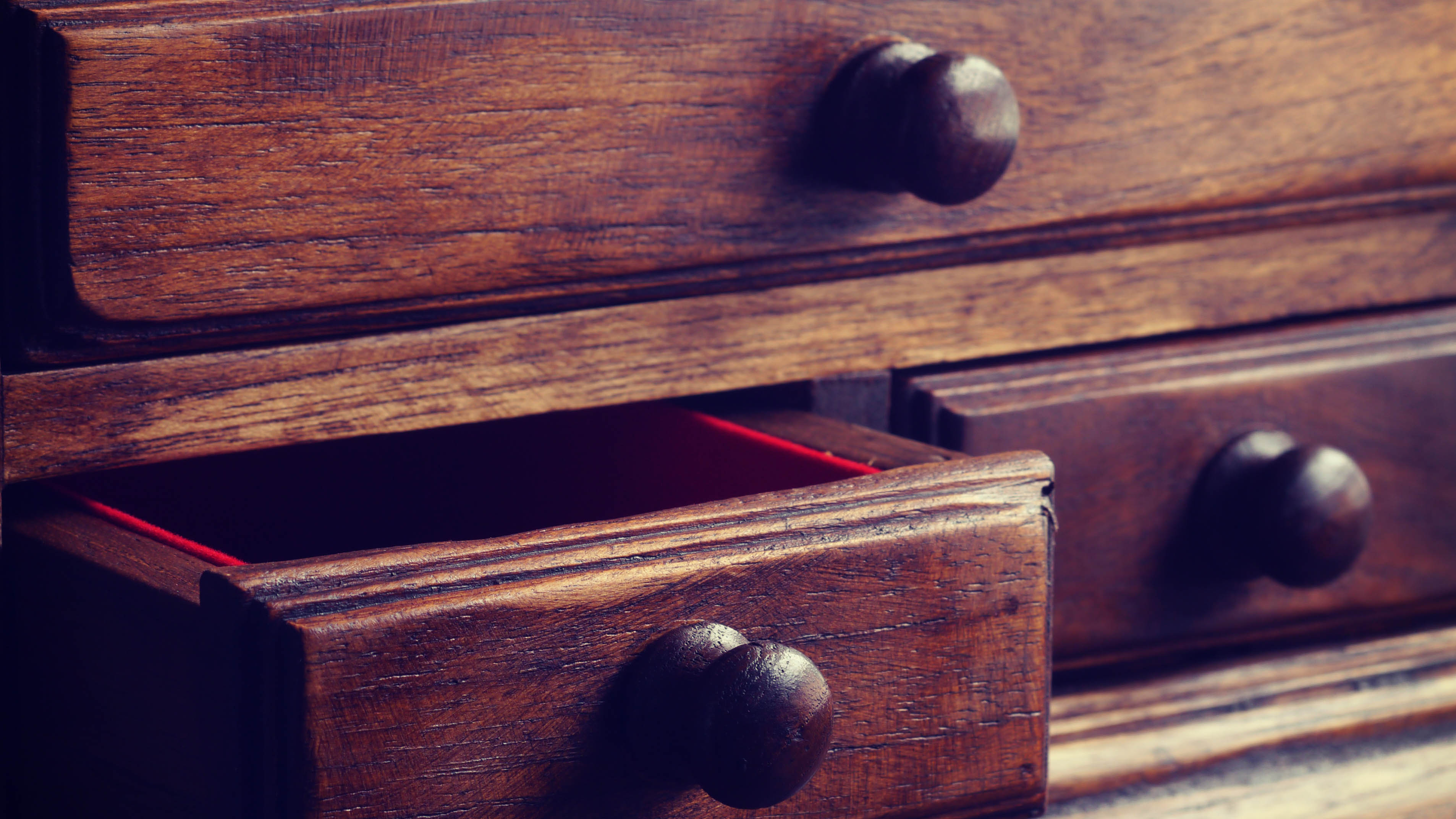
Finally, if you've got fine scratches on your dark wood furniture, be it from everyday use or pets, coffee grounds can come to the rescue here too. This is because it contains tannins, which dyes light surfaces on application.
Simply apply damp grounds to the scratch — a cotton swab can help with accuracy here. Then, let it sit for a couple of minutes before wiping away with a damp microfiber cloth. The exposed light wood should have darkened in tone. Repeat applications may be necessary, but scratches will ultimately fade away and be concealed with this method.
More from Tom's Guide

Katie Mortram used to be a Homes Editor for Tom's Guide, where she oversaw everything from kitchen appliances to gardening tools, as well as smart home tech. Specializing in providing expert advice for cleaning and home manintenance, she now works as Household Advice Editor for Good Housekeeping.
